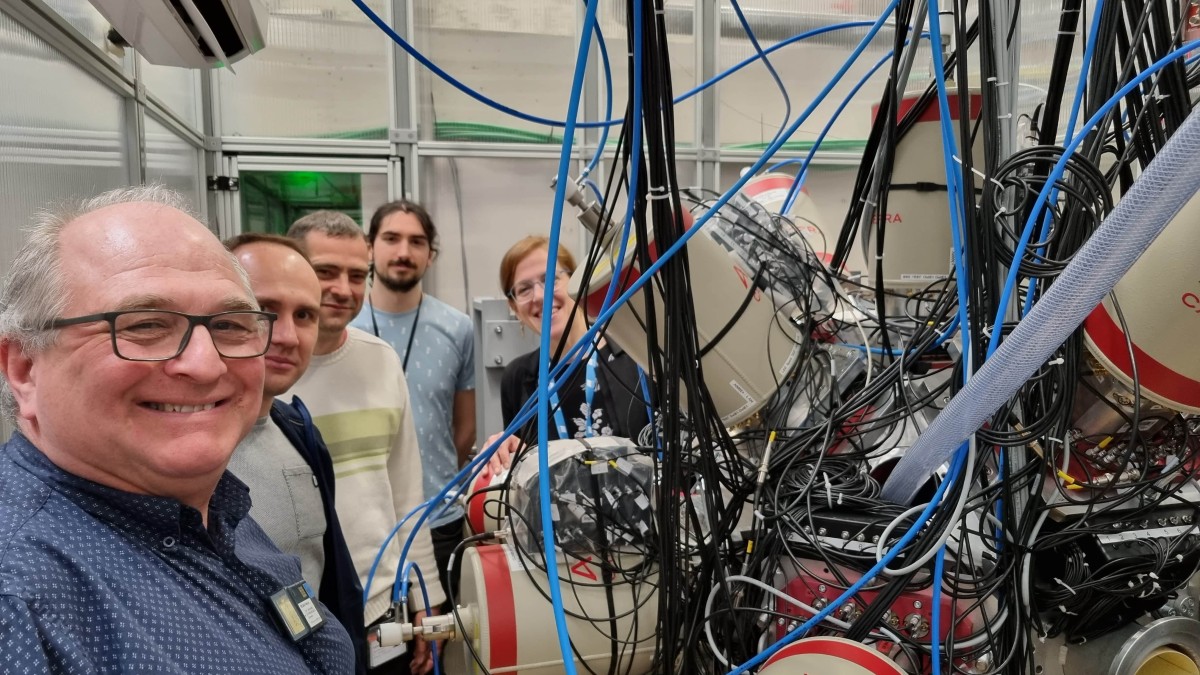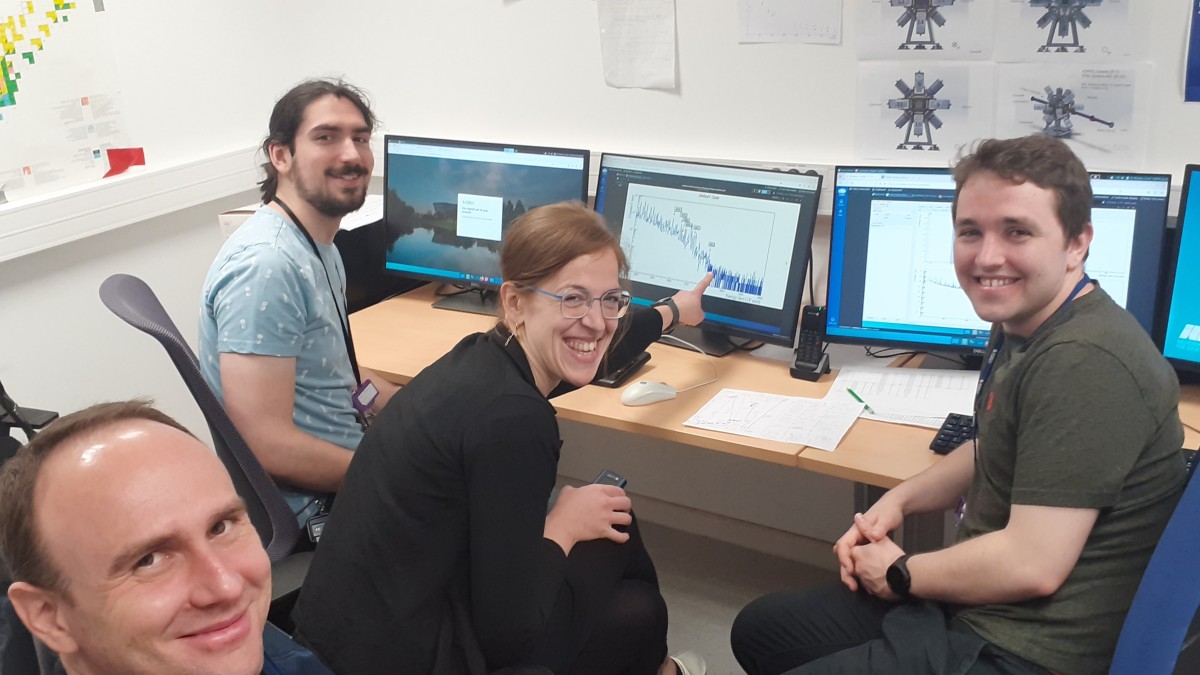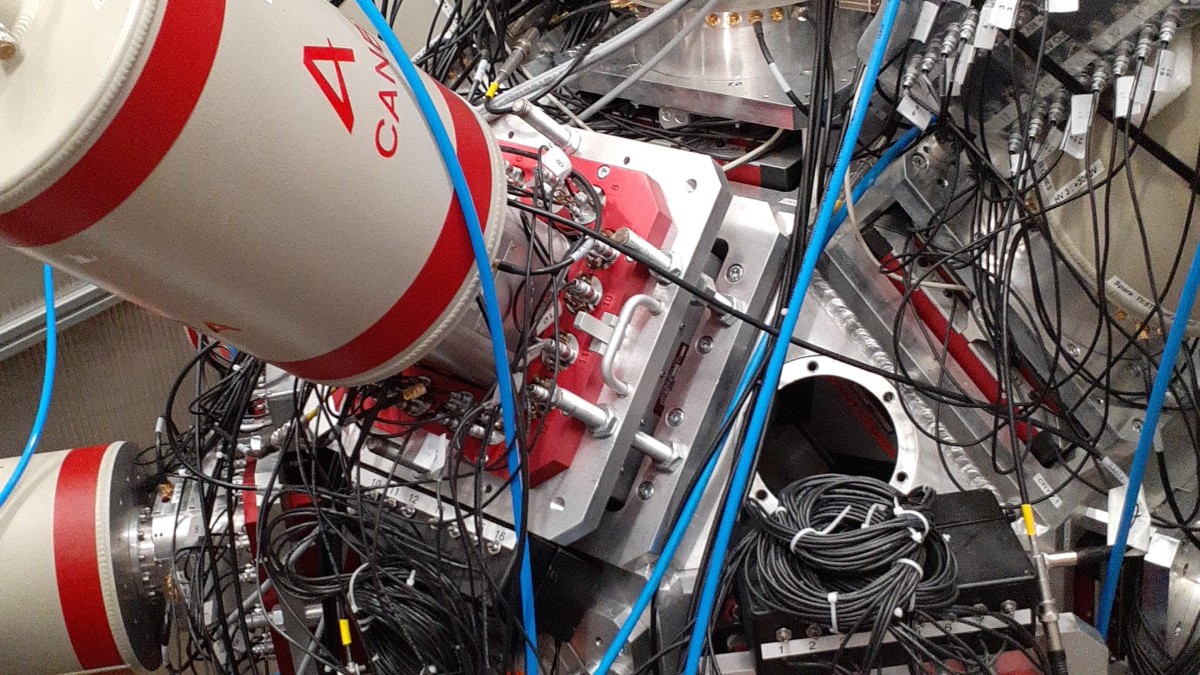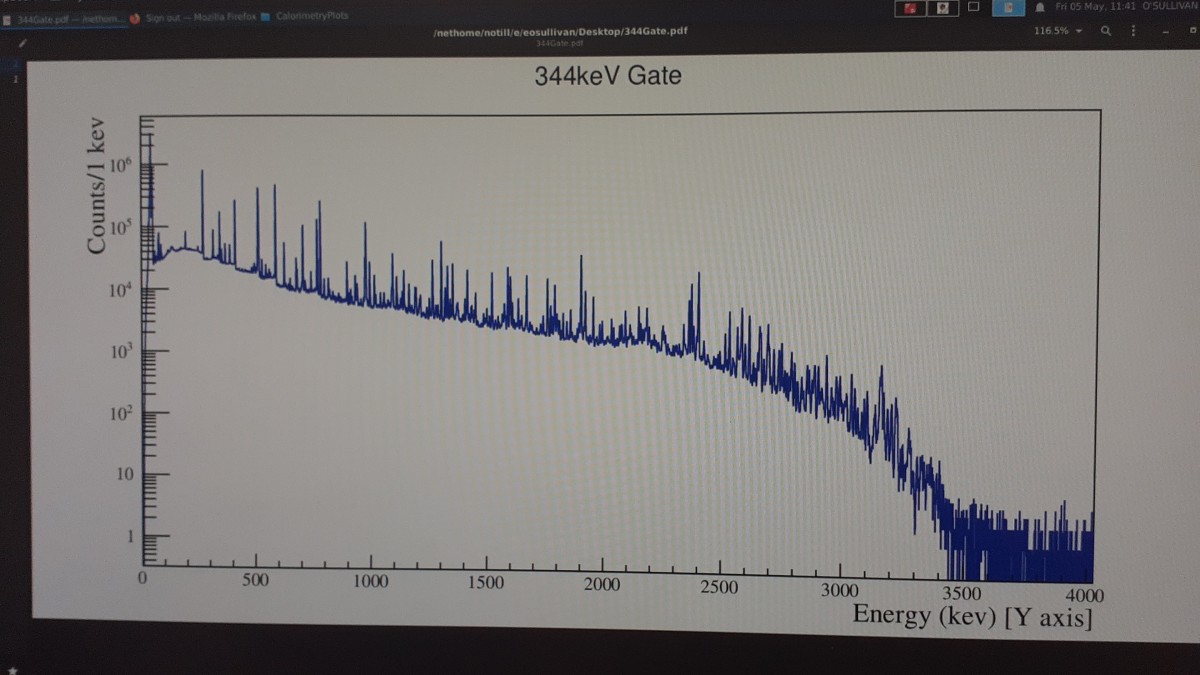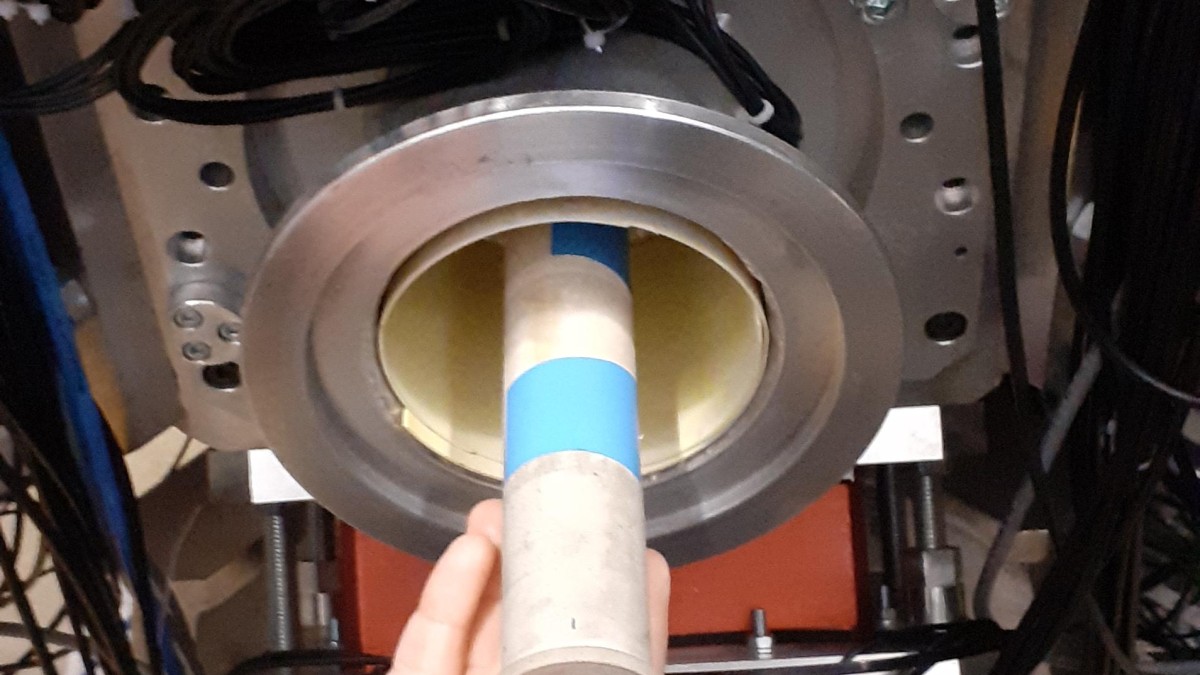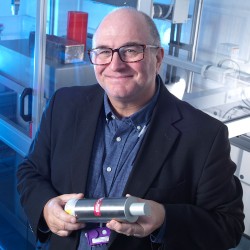Improved cancer treatments are the aim of nuclear physics experiment
An urgent road trip from Geneva to Grenoble facilitated specialist experiments that could lead to improved cancer treatments.
Professor Patrick Regan, a nuclear physicist at the University of Surrey who is one of the leaders of the study, said:
"We had to create the terbium radioisotope made using specialist facilities at CERN in Geneva, then rush them to the high-resolution gamma-ray detection instrumentation at ILL in Grenoble before the material signal was too small to measure due to its radioactive decay. In fact, one of the fundamental properties which gives Terbium-152 such a huge potential value is its half-life of 17 hours. It's long enough that cancer doctors would have time to use it after it has been synthesised and collected using accelerator-based nuclear reactions, but short enough that it won't cause any long-term health problems."
The experiment examined the signature light emitted following the decay of Terbium 152 in the form of gamma rays, with measurements enabling tagging correlated events within a billionth of a second of each other. The team will use a systematic gamma-ray spectroscopic analysis to pin down the unique signature spectrum of this radioisotope. This information is particularly important when terbium is used in medical treatments to keep track of where it goes in the body.
Professor Regan continued:
"The experiments created billions of individual decay events, which we now need to scrutinise. It'll take about two and a half years to crunch the numbers, but the precise measurements we were able to take mean we can already see uniqueness in Terbium 152's signature spectrum and have confidence in what we think we're seeing."
The experiment was the latest in the Surrey team's research into the Terbium Theragnostic Quartet, a group of isotopes which scientists are confident have strong potential in developing new approaches to treating cancer. The team are working with the National Physical Laboratory (NPL) to create standard signatures for isotopes for the UK and globally. The analysis will form the main research project for joint University of Surrey and NPL PhD student Ed O'Sullivan.
###
Notes to editors
Professor Paddy Regan is available for interview upon request
For more information on this experiment, please contact the University of Surrey's press office via mediarelations@surrey.ac.uk
Media Contacts
External Communications and PR team
Phone: +44 (0)1483 684380 / 688914 / 684378
Email: mediarelations@surrey.ac.uk
Out of hours: +44 (0)7773 479911
